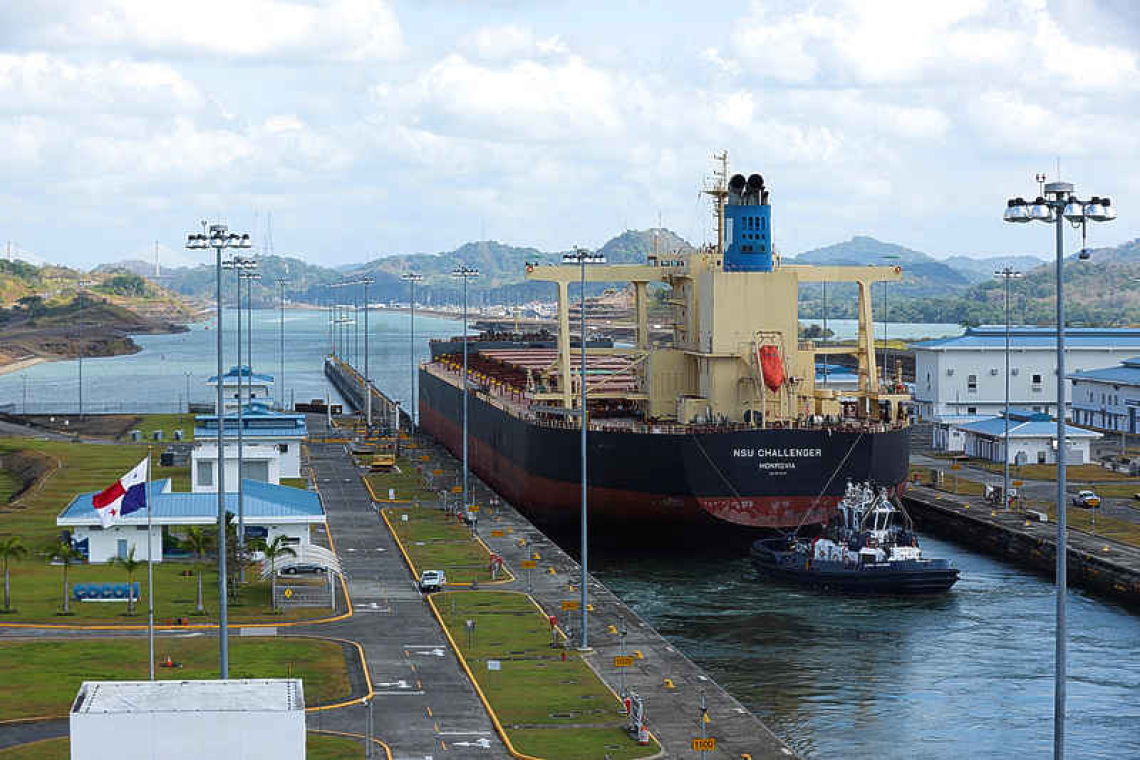LOS ANGELES/HOUSTON--Before the Ever Max ship carrying lava lamps, sofas, Halloween costumes and artificial Christmas trees could make its inaugural Panama Canal voyage this month, a historic drought forced it to drop weight by offloading hundreds of containers. Weather-related disruptions denied the vessel, owned by Taiwanese shipping company Evergreen Marine, a chance on Aug. 1 to set a record for carrying the most containers through the vital maritime shortcut that connects the Pacific and Atlantic oceans. The Panama Canal Authority has reduced maximum ship weights and daily ship crossings in a bid to conserve water. Maritime transportation experts fear such events could become the new normal as rainfall deficits in the world's fifth-wettest country spotlight climate risks affecting the ocean shipping industry that moves 80% of global trade. Ship owners have the options of carrying less cargo, shifting to alternate routes that can add thousands of miles to the trip or grappling with queues that earlier this month backed up 160 vessels and delayed some ships by as much as 21 days. The restrictions already are sending China-U.S. spot shipping prices up as much as 36% amid soaring sea temperatures that climate scientists warn could supercharge extreme weather. "You have to wave a caution flag because the temperatures are so far above normal," said Drew Lerner, founder and senior agriculture meteorologist at World Weather, whose customers include global commodity traders. Canal operators are on a tightrope as they work to manage maritime trade disruption and prepare for what is shaping up to be an even drier period next year, said Peter Sand, chief analyst at air and ocean freight rate benchmarking platform Xeneta. More than 14,000 ships crossed the canal in 2022. Container ships are the most common users of the Panama Canal and transport more than 40% of consumer goods traded between Northeast Asia and the U.S. East Coast. U.S-bound vessels caught in the bottlenecks have carried Barbie dolls, auto parts, BYD solar panels, water treatment equipment, diabetes testing kits and other goods, according to data from Steve Ferreira, CEO of a company that audits ocean shipping bills. Restrictions at the canal started earlier this year, affecting about 170 countries and virtually every type of good - including soybeans and liquefied natural gas from the United States, copper and fresh cherries from Chile, and beef from Brazil. Bulk carriers that transport commodities from corn to iron ore, as well as tankers that move oil, fuel, gas and chemicals also are affected. Some energy companies are rerouting vessels laden with coal and liquefied natural gas to the Suez Canal. A naturally occurring El Nino climate pattern associated with warmer-than-usual water in the central and eastern tropical Pacific Ocean is contributing to Panama's drought. The area around the canal is experiencing one of the two driest years in the country's 143 years of keeping records, data from the canal authority and the Smithsonian Tropical Research Institute (STRI) showed. Rainfall measurements around the area are 30-50% below normal. Water levels in Gatun Lake, the rainfall-fed principal reservoir that floats ships through the Panama Canal's lock system, have remained below normal despite accumulation from the current rainy season. A potential early start to Panama's dry season and hotter-than-average temperatures typical of major El Nino events in the country could increase evaporation from Gatun Lake and result in near-record low water levels by March or April 2024, said STRI's Steven Paton. "It's the perfect storm of events," said Paton, who has monitored rain patterns in the Central American country for more than three decades. The frequency of major El Nino drying patterns has risen significantly during the last 25 years of the canal's 109-year history. If that continues, "it will be increasingly difficult for (the Panama Canal) to guarantee that the largest ships are going to be able to get through," Paton said.







